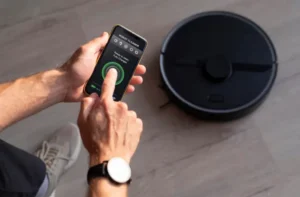 Technology promised to make our homes “smart.”
Technology promised to make our homes “smart.”
Lights that switch on before we enter the room. Thermostats that learn our habits. Doors that unlock when they recognize our face.
Convenient? Absolutely. But somewhere between automation and obsession, it’s worth asking: are we using smart homes to improve life — or to stop living it ourselves?
From Luxury to Lifestyle
Ten years ago, smart homes sounded futuristic — something for tech millionaires with glass walls and robotic assistants.
Now, anyone with Wi-Fi and a phone can have one.
Voice-controlled lighting, energy-efficient systems, and connected appliances have moved from novelty to necessity.
But the real shift isn’t in technology — it’s in mindset.
People no longer want homes that just protect them. They want homes that respond to them.
The smart home isn’t a gadget anymore. It’s a relationship.
The Rise of Everyday Intelligence
It starts small: a smart bulb here, a connected speaker there. Then, suddenly, your entire routine syncs with your devices.
The thermostat knows when you wake up and adjusts the temperature. The blinds open to sunlight automatically. Coffee brews before you even step into the kitchen.
It feels like magic, but it’s just data — your daily habits turned into digital behavior. The system learns, predicts, and adapts.
That’s convenience at its finest: invisible technology making everyday life smoother.
But there’s a thin line between helpful and dependent.
When Convenience Becomes Control
Here’s the irony: the more control we give to technology, the less control we sometimes have.
When your entire home depends on Wi-Fi, even a small outage feels like chaos. Lights stop responding. The door won’t unlock. The house forgets who’s boss.
The real “smart” part of a home isn’t the tech — it’s how you use it.
A home that works for you should never work against you when the internet drops or power flickers.
That’s why balance matters: smart doesn’t have to mean overconnected.
The Psychology of Automation
Smart homes tap into something deeper than comfort — control.
Humans love the feeling of mastery: one voice command and the world reacts. But the same comfort that simplifies life can also dull awareness.
When everything happens automatically, we stop noticing the small rituals that once grounded us — flipping a switch, brewing coffee, closing the blinds at night.
Those moments weren’t just tasks; they were transitions. Small reminders that we live with our homes, not just inside them.
Automation can free time, but it can also blur connection.
The Real Benefits Still Matter
Despite the philosophical questions, the smart home movement has undeniable power.
It saves energy, lowers bills, and makes daily life safer. Smart thermostats cut waste by learning when no one’s home. Motion sensors and security cameras protect families. Automated lighting helps the elderly or people with mobility issues.
In other words, smart homes aren’t just cool — they’re inclusive. They give independence to people who might otherwise need help. That’s where technology shows its heart.
When used thoughtfully, it doesn’t replace humanity; it enhances it.
The Future Is Subtle
The next wave of smart homes won’t be loud or flashy.
It won’t be walls full of screens or rooms that talk too much. It’ll be silent, adaptive, almost invisible — a home that senses, not shouts.
You’ll walk in, and everything will just feel right — the light, the temperature, the sound.
Not because it’s trying to impress you, but because it understands you.
That’s the real goal of smart design: not to make you dependent, but to make life effortless without losing its texture.
The Bottom Line
Smart homes aren’t about gadgets — they’re about how we live.
When done right, they don’t make us lazy; they make us more aware of what truly matters: time, energy, comfort, safety.
The best technology is the kind that disappears — not because it’s gone, but because it fits so perfectly into life that you forget it’s even there.
Maybe that’s what “smart” really means.
Picture Credit: Freepik
